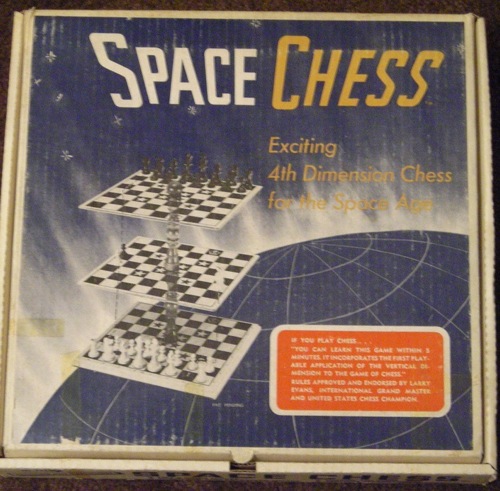Chess Match (12)
By:
February 17, 2010

And when the words were ended, not unlike
To iron in the furnace, every cirque,
Ebullient, shot forth scintillating fires:
And every sparkle shivering to new blaze,
In number did outmillion the account
Reduplicate upon the chequer’d board.
— from Dante Alighieri, The Divine Comedy (Paradise, Canto XXVIII), in which the Poet perceives the divine essence orbited by nine heavens. Each of the divine essence’s sparkles is more sparkly, he says, than if you redoubled a single sparkle for each of a chess board’s 64 “chequer’d” squares.
Dante no doubt got this conceit from the Persian proverb about a Shah who wanted to reward the inventor of chess, and asked what the man would like. The man asked “as his only reward that the Shah would give him a single grain of corn, which was to be put on the first square of the chess-board, and to be doubled on each successive square; which, to the surprise of the king, produced an amount larger than the treasures of his whole kingdom could buy.”
Economists who preach the miracle of compound interest have done the math. Swapping grain for sparkles, the number of sparkles on the n(th) square is 2^(n-1), or 2 to the power of n-1. (This is because the first square has 2^0 = 1 sparkle, the second has 2^1 = 2, and the n(th) square has twice as many as the previous.) Thus the total number of sparkles is S = 1 + 2 + 4 + 8 + … + 2^63. Since this is a geometric sequence with common ratio 2, the sum is:
2^64 – 1
S = ——– = 2^64 – 1 = 18,446,744,073,709,551,615
2 – 1
Which is to say that each sparkle of the divine essence shines more brightly than about 18-and-a-half quintillion normal sparkles combined. Nice.
Eleventh in an occasional series.
